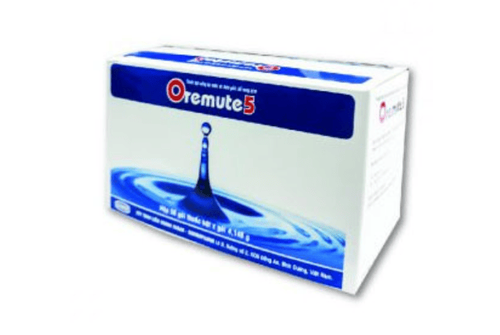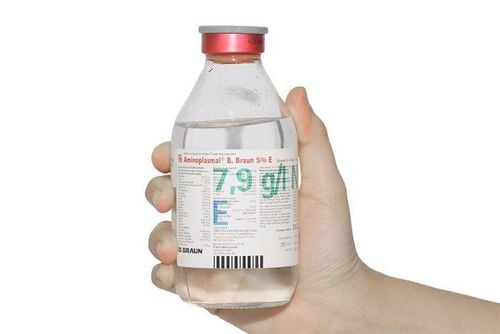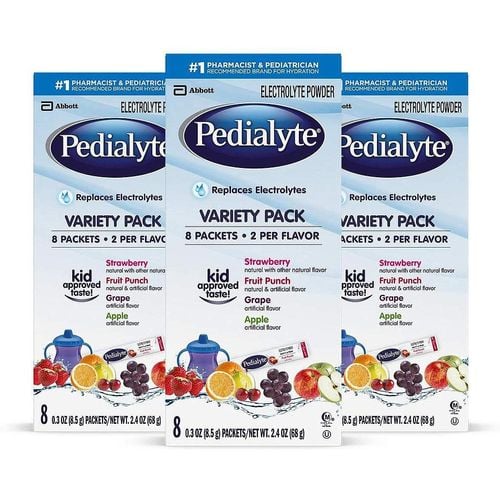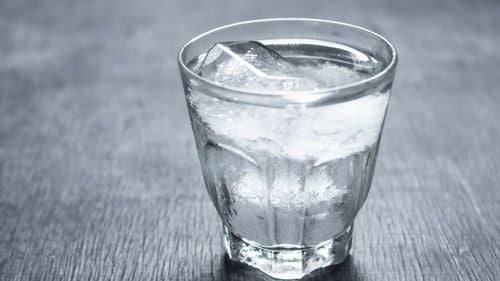This is an automatically translated article.
Electrolytes are involved in many essential processes in the body. They play an important role in carrying out nerve impulses, working muscles, keeping the body hydrated, and regulating the body's pH level. Therefore, the client needs to get enough electrolytes from the diet to keep the body functioning as it should.1. What are electrolytes?
Elect Elect Yteyte is the term for particles that carry a positive or negative charge. In nutrition, the term refers to essential minerals found in blood, sweat, and urine. When these minerals dissolve in a liquid, they form electrolytes - positive or negative ions that are used in metabolic processes.Electrolytes found in the body include:
Sodium Potassium Chloride Calcium Magnesium Phosphate Bicarbonate These electrolytes are necessary for various metabolic processes, including nerve function and functioning. proper muscles, maintain acid-base balance and keep the body hydrated.
2. Electrolytes maintain body functions

Chất điện giải là rất quan trọng để giữ cho hệ thống thần kinh và cơ bắp của hoạt động và môi trường bên trong cơ thể cân bằng
2.1 Nervous System Functions The human brain works by sending electrical signals through nerve cells to communicate with cells throughout the body. These signals are called nerve impulses, and they are produced by a change in the electrical charge of the nerve cell membrane.
Changes occur due to the movement of sodium electrolytes across the neuronal membrane. When this happens, the body sets off a chain reaction, moving more sodium ions (and a change in charge) along the length of the nerve cell axon.
2.2 Fluid balance Fluid needs to be kept in the right amount both inside and outside of every cell in the human body. Electrolytes, especially sodium, help maintain fluid balance through osmosis. Osmosis is the process by which water moves across the cell membrane from a dilute solution (more water and fewer electrolytes) to a more concentrated solution (less water and more electrolytes). This prevents cells from bursting from being too full of water or from shrinking due to dehydration.
2.3 Balance PH To maintain good health, the body needs to adjust the pH to a balanced level. pH is a measure of how acidic or alkaline a solution is. In the body, it is regulated by chemical buffers, or weak acids and bases, which help to minimize changes in the body's internal environment.
For example, blood is regulated at a pH level of about 7.35 to 7.45. If the pH deviates from this range, the body may not function properly, causing health effects. Maintaining a balance of electrolytes is fundamental to maintaining healthy blood pH levels.
3. Risk of electrolyte imbalance

Mất cân bằng điện giải có thể gây ra một vài triệu chứng như mệt mỏi, tim đập nhanh,...
Electrolyte imbalances are often caused by dehydration from being in extreme heat, vomiting or diarrhea. Certain illnesses, including kidney disease, eating disorders, and injuries like severe burns, can also cause electrolyte imbalances.
However, a more serious imbalance can cause symptoms such as:
Fatigue Fast or irregular heartbeat Numbness and tingling Confusion Muscle weakness and cramps Headache Convulsions
4. Sweat and electrolytes
When you sweat, your body loses both water and electrolytes, especially sodium and chloride. Usually occurs with intense exercise or activity, especially in hot weather, which can cause significant electrolyte loss.It is estimated that the average sweat contains about 40 to 60 mmol of sodium per liter. But the actual amount of electrolytes lost through sweat can vary from person to person. In the United States, the maximum recommended sodium intake is 2,300 mg per day - the equivalent of 6 grams or 1 teaspoon of table salt. About 90% of American adults consume more than this, most users do not need to replace the salt lost through sweating.
However, some people, such as endurance athletes, who have exercise schedules for more than two hours, or those who exercise in very hot environments, may need to consider drinking a rich sports drink. electrolytes to replace the lost through sweat.
5. Source of electrolytes

Nguồn thực phẩm chính của chất điện giải là trái cây và rau quả
Sodium: Pickled foods, cheese and table salt Chloride: Table salt Potassium: Fruits and vegetables like bananas, avocados and sweet potatoes Magnesium: Nuts Calcium: Dairy Products Electrolytes like bicarbonate are produced naturally in the body, so users don't need to worry about bicarbonate supplements.
6. Replenish Electrolytes
Usually, maintaining a healthy and complete diet can ensure a balanced electrolyte level in the body. But in some cases, such as vomiting and diarrhea, the addition of a rehydration solution containing electrolytes may be necessary. Users should be aware that unless the body is low in electrolytes due to excessive loss during high exercise or under load through medical conditions, electrolyte supplementation may cause imbalance and can cause disease.Please dial HOTLINE for more information or register for an appointment HERE. Download MyVinmec app to make appointments faster and to manage your bookings easily.
Reference article: Healthline.com












